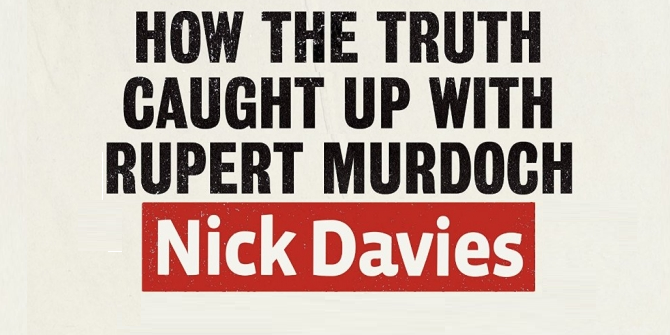 By MSc student Jae Aron. Jae previously worked as a political consultant for Democratic campaigns in Washington, DC. Follow her on Twitter @Jae_Aron
By MSc student Jae Aron. Jae previously worked as a political consultant for Democratic campaigns in Washington, DC. Follow her on Twitter @Jae_Aron
As part of the LSE Literary Festival on 27th February, David Aaronovitch talked to Charlie Beckett on his memoir Party Animals: My Family and Other Communists.
Like other party children I had — though it took me the first decade of my life to realize it — been born at a 90-degree angle to the rest of society.
Aaronovitch gave a deeply personal, historical, and at times, damning account of his early life among communists, as he answered questions from Charlie Beckett and the audience.
Growing up with communist parents meant that Aaronovitch’s lived in a parallel universe: as he recounts in his memoir, while other kids attended church, Aaronovitch went to socialist Sunday school, where he learned an alternative history that exalted the virtues of the communist party and overlooked its flaws.
His parents’ were fervent supporters of the communist cause: even in the face of Stalin-era atrocities and Russian aggression, they stood with British Communist Party. They were, in Aaronovitch’s own words, “the hardest of the hard.”
To quote a phrase from his memoir:
My parents’ politics were inseparable from their psyches. So are yours. I have been asked by one of the brightest men in the land, in tones of genuine incredulity, how could my mum and dad have been Communists? How could they have remained Communists? What, he implied, was wrong with them? They were human, is what was wrong with them.
Towards the end, the questions turned more personal. Charlie Beckett asked Aaronovitch to reflect on the degree to which writing his book was a form of catharsis and how his unorthodox upbringing has affected his parenting. He was also peppered with questions from the audience about his own political transformation and potential guilt for leaving the party (Aaronovitch now describes himself as center-left), his siblings’ response to the memoir, and the future of the Labour Party.
Despite – or perhaps, because of – having been born at a “90-degree angle,” Aaronovitch emphasized the importance of optimism, believing in the power of rational discourse, and public places like the LSE, to engender dialogue and change minds.
@Jae_Aron






